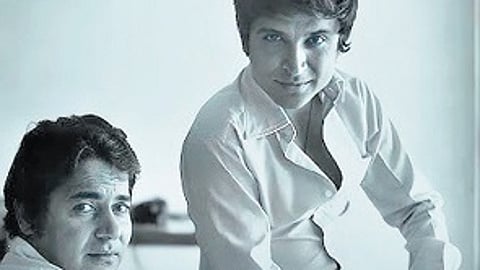

BENGALURU: How often have you watched a film and then looked up the writer? Likely not too often. Screenwriters, who work tirelessly behind the scenes to shape the worlds, characters, and stories we enjoy, continue to face numerous challenges.
The Kannada industry is no different. Writers often turn to directing out of necessity, limited budgets, and scarcity of writers’ rooms. Yet, as the industry evolves, those who wield the pen hold onto hope for better times ahead.
‘industry seems indifferent to writing by women’
When filmmakers began obsessing over controlling every aspect of what constitutes a film, and, more importantly, wanting to take credit for everything, that’s when the quality of Kannada cinema started to decline. The current problems the industry is lamenting can be traced back to this. The situation for women writers in the industry is particularly dire.
Over the course of its 90-year history, there have likely been fewer than half a dozen women writers. Even though Kannada literature and theatre are brimming with female writers, cinema has always been male-dominated. Even if a talented woman writer somehow manages to get work, it’s highly unlikely she’ll receive the recognition she deserves. The industry seems indifferent to the writing women might produce or seem to avoid it entirely.
— Sumana Kittur, screenwriter-director-lyricist
‘Writers who only want to write are rare’
I learned screenwriting out of necessity. The stories I want to tell and the writers we aim to develop are hard to come by. We’ve brought in writers because good writing requires more than technique; life experience is essential for certain subjects. Writers’ rooms could benefit directors, but it’s rare to find writers here who want to focus solely on writing. However, this differs from what I hear about places like Hollywood where writers want to stick only to writing.
– Vikas Badiger, filmmaker-producer
‘Hard to get recognition’
In my experience, many writers become directors because gaining recognition solely as a writer is difficult, especially compared to the Malayalam film industry. While there are signs of change, there’s still a long road ahead. For outsiders, getting a script made is challenging, often relying on connections or networking. Even OTT platforms won’t accept scripts directly from independent writers. The process is typically opaque, involving agents or representatives.
– Nishanth, writer-filmmaker
‘Production houses are investing more in writers’
Writing rooms are still a new concept, particularly in the Kannada industry, but production houses are starting to invest in writers and teams, which is encouraging. The main benefit of being part of a writing team is the opportunity to collaborate, exchange feedback, and foster a better writing culture. Working with a studio has given me the security of a steady income, allowing me to focus solely on writing. Freelance writers often have to take on additional jobs to make ends meet, as writing alone doesn’t always provide financial stability, and consistent work can be hard to find.
– Pooja Sudhir, screenwriter, Paramvah Studios
‘Writers are often undervalued’
With the rise of OTT platforms, writing is finally gaining some recognition, something that’s been long overdue, particularly in the Kannada industry. For example, a talented character actor might earn D3-3.5 lakh per day, while a skilled screenwriter struggles to secure D5 lakh for an entire film. Writers create the world, the atmosphere, and the characters, yet they are undervalued by producers. The audience sees the actors, hears the music, and notices the cinematography, but not the writing. While it’s understandable that audiences may overlook the writing, producers have no excuse.
– KM Chaitanya, filmmaker
‘More opportunities for new writers’
In filmmaking, it’s essential to recognise the contributions of all departments, including screenwriters. A strong script is critical to a film’s success, as it attracts talented collaborators and secures investment. With the rise of streaming platforms and global recognition of Indian films, new opportunities are emerging for writers. The digital boom and the influence of social media have expanded the market, making it easier for emerging writers to gain visibility, something that would have been much harder in the traditional film circuit.
– Chidananda S Naik, screenwriter-director